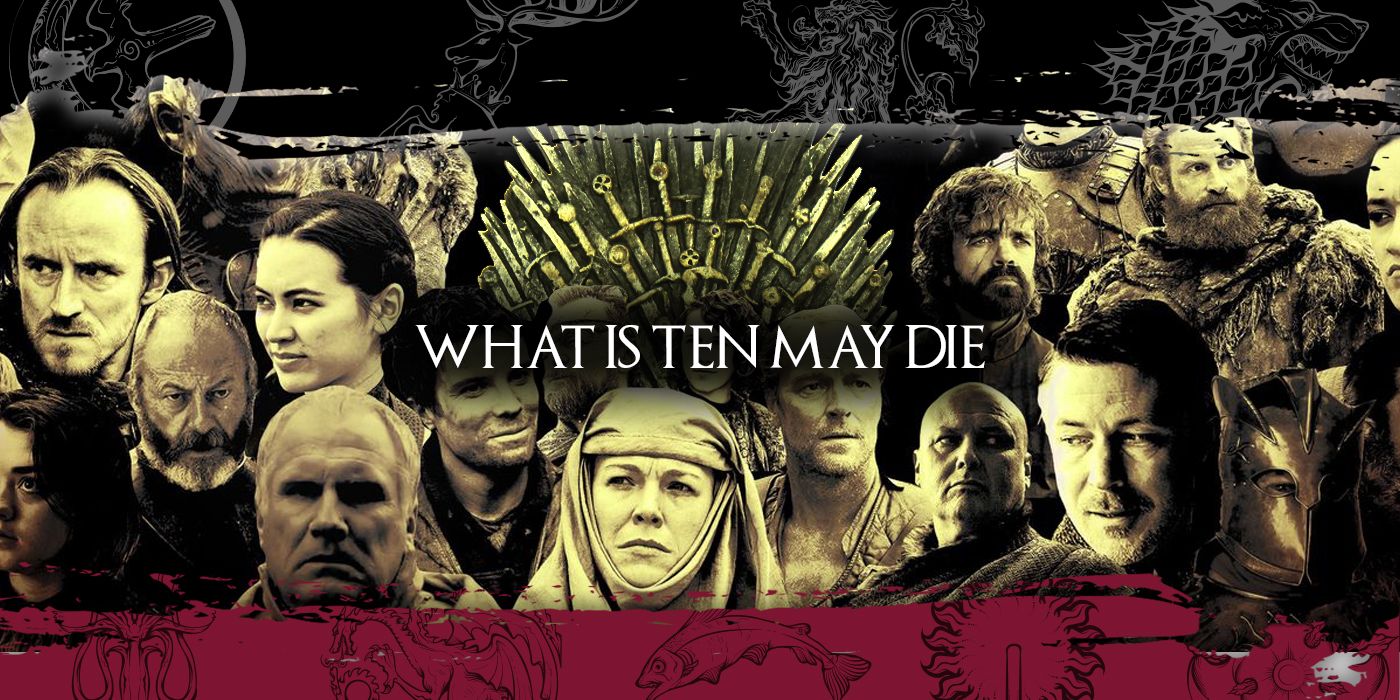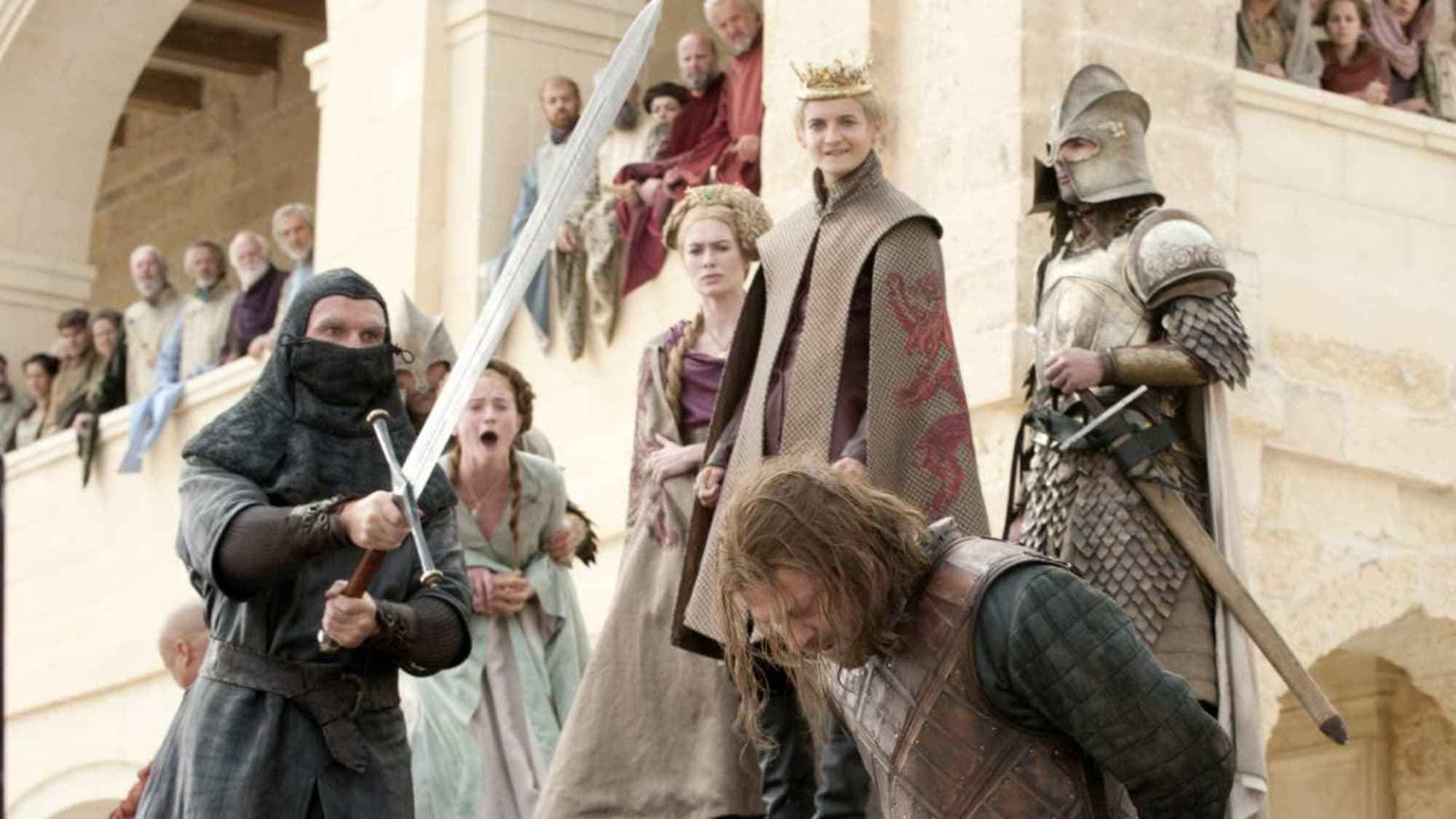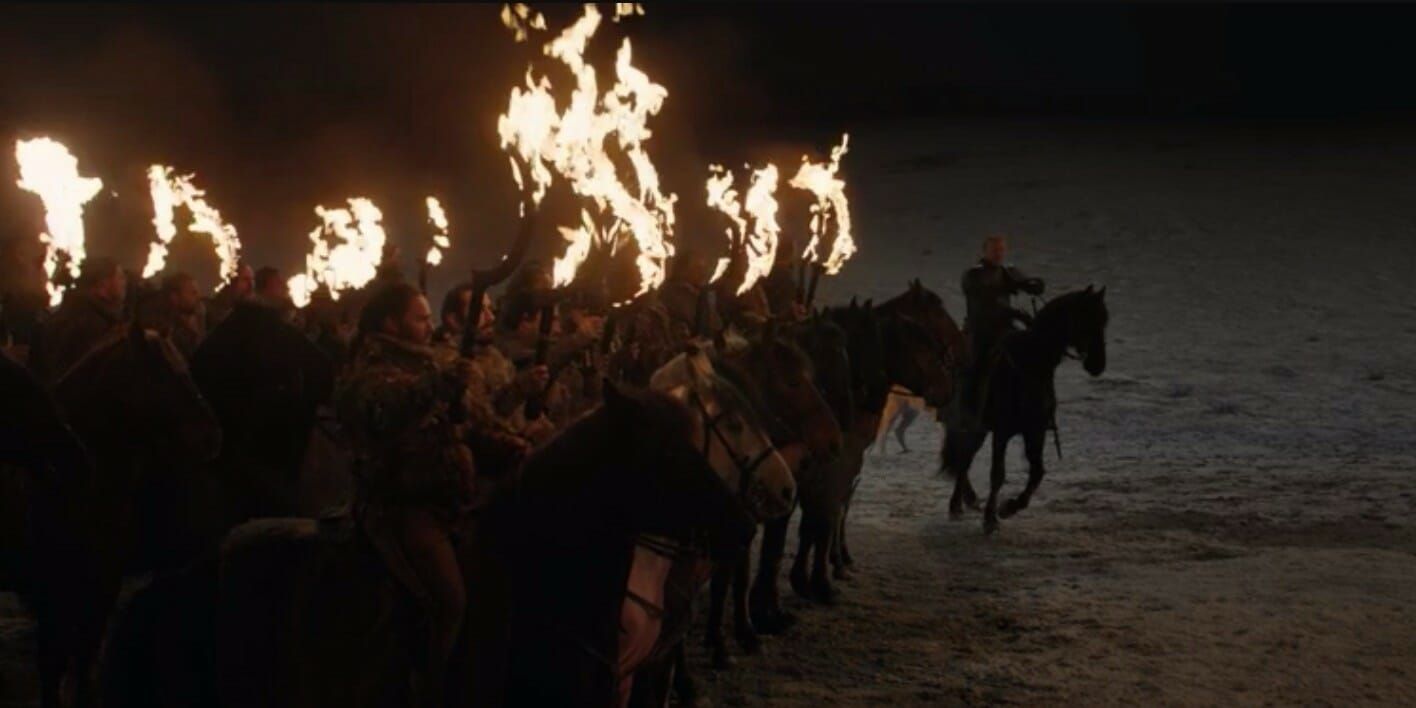On April 17, 2011, a new HBO drama about warring families, icy zombies, and CGI dragons premiered, and whether you loved it or hated it, there's simply no denying the kind of impact Game of Thrones had not just on television, not just on pop culture, but on the world in general. Its epic journey was a wild, weird, and fascinating adventure, and to mark the occasion Collider presents "What Is Ten May Never Die," a ten-week retrospective on the show's legacy — what we remember fondly, what we wish we could forget, and everything in between.
In the two years since Game of Thrones last shed blood on our screens, the most notable aspect of its legacy has become its lack of one. Despite bringing home 59 Emmys and countless other awards for HBO over its eight-season run, despite the wildly devoted fanbase it accumulated, the primary reason the show comes up as a topic of conversation these days is when we talk about how little we talk about it.
The power that Thrones wielded as a series always came down to the perception that no one was safe, that dogs and children and the like were just as vulnerable as the good and bad men and women who populated this world. But in looking back over the seasons, what really stands out is the fact that it never really crystallized around a central message. There was some top-notch filmmaking involved, and years of familiarity ensured a certain level of emotional engagement with the core cast. But what was it all for, in the end? The fact that the show was so disinterested in the answer to that question is ultimately why it's taken almost no time at all for it to slip from our memories.
To get a little meta about things (call it my "A Song of Ice and Fire by Samwell Tarly" moment), a recurring element of the What Is Ten May Never Die project (in which this will be the final entry) was how much of the show was able to slip from our memories, in a relatively short period of time. There were six Stark direwolves, and you'd better believe that before I did the research to write about their history, I could only remember the fates of two of them. The impact of Ned Stark's (Sean Bean) death extended well beyond the show, but it was so well-executed (sorry) that it deserved further appreciation. And can you believe how many video games were made in connection with the Thrones brand? So many!
That said, there's a lot I haven't forgotten about Game of Thrones and that includes a lot of fond memories. But all of them are very rooted in the experience of watching the show in the moment, the jaw-dropping and heartbreaking shocks, the communal feeling that arose around it. And even as much as we like to crap on that final season, I did enjoy the small and large moments of triumph: Brienne of Tarth getting it, Tyrion finally getting the power we know he'll use wisely, Arya being the one to finally, ultimately take down the Night King. As Miltos Yerolemou (Syrio Forel himself!) said when I interviewed him this spring, "That whole way of watching TV was already shifting. I mean, now we're all into streaming and binge-watching. But Game of Thrones kind of straddled that transition, and really took us back to a place where it was exciting to watch that show altogether and at the same time."
It's beating a dead direwolf to mention that the show's downward slide in quality came just as showrunners David Benioff and D.B. Weiss had to forge beyond George R.R. Martin's original novels into their own storytelling, but honestly, that was only part of the problem, as there were countless instances of Benioff and Weiss making smart changes or additions to the story from the books prior to then. Really, though, the problem can be traced to how the show's themes were ultimately lost in the blood, sweat, and battles that became the show's raison d'etre.
You might say that Game of Thrones has been so quickly shunted off to the shadows because of its unsatisfactory ending, but consider The X-Files, a show that for a time was one of the most dominant forces in pop culture, and also suffered from an unsatisfactory ending — arguably, four separate ones, when you consider the original Season 9 "series finale," the very bad 2008 film I Want to Believe, the show's painful Season 10 cliffhanger in 2016, and then the Season 11 finale that was so bad that it may or may not have been the reason why Gillian Anderson declared she was done playing Scully for good. (Credit due to Alisha Grauso for making that comparison on Twitter this week.)
Yet The X-Files still resonates, largely on the basis of how iconic and genre-defying it was during its initial run. And even during its least successful moments, there was still a fundamental something happening there thematically — wonder at the mysteries of the universe, hope that there might be more than we understand beneath the surface of the humdrum, faith in the best of humanity doing what it can to combat the worst of it.
The argument can be made that Game of Thrones was also interested in this sort of good versus evil triumph, along with the recurring theme of never underestimating a person on the basis of their gender or age or ability. But the waters were constantly muddied by the show's addiction to the shock value that defined so many of its most memorable moments, to the point where that shock value became the basic point. What's the deeper meaning behind the deaths of Jaime and Cersei in the rubble of Kings' Landing? Or Daenerys's descent into madness? We wrote a whole list of plot threads forgotten by Benioff and Weiss over the course of the show's run, but these questions represent the real plotholes of Game of Thrones.
If you don't stand for something, you'll fall for anything, said Alexander Hamilton in a hip-hop musical. Put it another way: A show can survive a bad ending if it has something to say. But when something gets reduced down to spectacle, that's all that's left when the credits roll, and the staying power of spectacle is, quite simply, an oxymoron.
It's a lesson that hopefully the folks currently working on prequel series The House of the Dragon are bearing in mind as production on that show advances towards an unknown premiere date. Because we'll be looking to that show for the same kinds of thrills delivered by Game of Thrones — even though we might struggle to remember why they were special.
Game of Thrones is streaming now on HBO Max.



